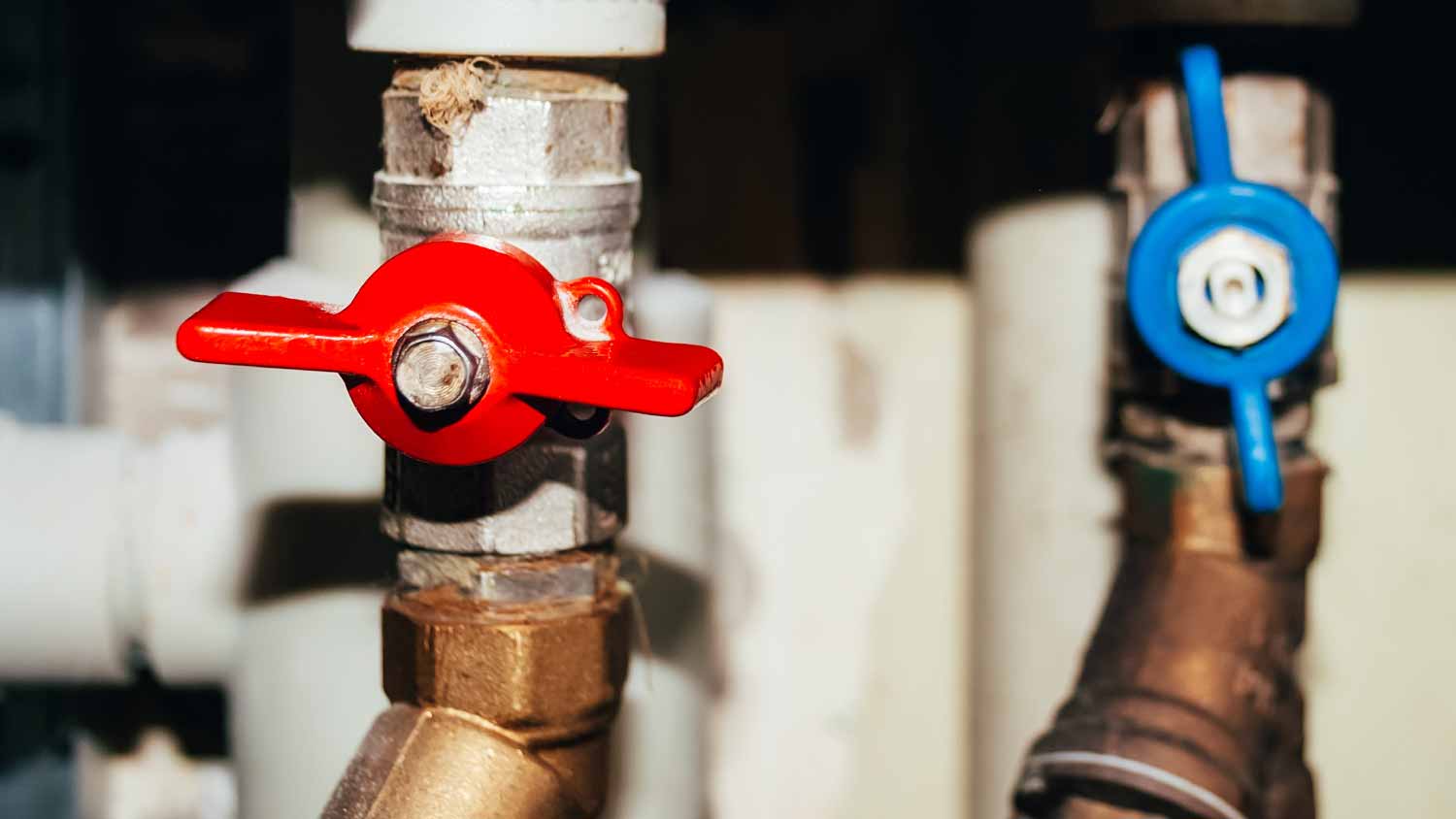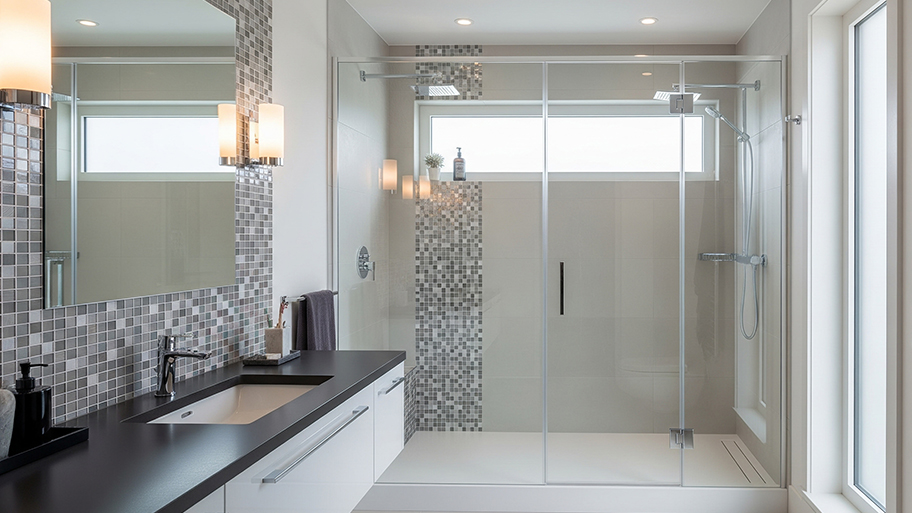
Fire damage restoration costs vary widely based on the extent of the damage. Learn how to assess your home and estimate your total after a fire.
Claim your water damage with confidence


Whether it starts with a dreaded wet spot on your ceiling or a puddle on your basement floor, when water damage strikes your home, it can quickly turn into a flood of confusion. You might not know where to start or how to handle the insurance aspect, but planning ahead can help you prepare for the unthinkable. Follow these ten water damage insurance claim tips to get off to the right start so that you can maximize your insurance coverage.
When water damage is discovered, turn off the power and disconnect all electronic devices from any affected area.
Identifying the source of the water damage is one of the first steps in preventing further damage. So, before you begin filing a claim, it’s a good idea to tackle the leak itself to get all of your ducks in a row.
To find a water leak, scan the interior and exterior of your home for signs of a leak. Remember these common signs of a water leak to help you navigate your search and keep it from feeling like a Where’s Waldo situation:
Remember, if your water leak is near electronics or appliances, you should always contact a professional plumber to stop the flow of water to avoid potential electrocution.

Once you’ve found the issue, shut off the source of the water. This could mean a simple, individual valve for a toilet or washing machine, or it could mean turning off the main water valve. The main water valve shuts off the water to your whole home, which may be necessary if you have a leak originating from pipes that don’t have an individual shut-off valve or you can’t identify the source.
Not all items in a room with water damage have to be a lost cause. Once you’ve found a leak and shut off the water, it’s time to send a lifeboat out to any valuables that don't have water damage should be on your to-do list. Put them in another room to keep them safe and to free up the room with the leak. Freeing up space will make it easier for your insurance assessment and could make it easier for you to document damage through photos and videos.

When you sign your home insurance contract, reading the details may feel a little like reading an encyclopedia. But this brick of text is exactly what you’ll need to review as you prepare to file your claim. Get familiar with your home insurance policy to learn just how much damage your homeowner insurance covers—if they cover it. Every policy is different. Some home insurances cover roof leaks, while others don’t, for instance. So, comb through the fine print for specific details about your plan.
Now is your chance to be an interior design photographer. Home insurance companies typically need a lot of evidence before they're willing to authorize a claim. Photos of any damaged areas of your home. Remember, the more documentation you have, the better. You'll get bonus points for taking videos and writing out a document of the damage.

Filing a claim should be somewhere near the top of your to-do list—once you’ve ensured the leak has stopped, protected your possessions, checked that your home insurance policy covers the damage, and have good documentation of said damage. Many insurance companies have online options for filing a claim, but some companies may need you to call in to speak with an agent. When you file your claim, the claim gets placed in the system for the insurance company to review.
Once your insurance company reviews your claim, an adjuster will come to your home to evaluate the water damage. It's important not to repair or remove water damage in your home until after your claim has been assessed and authorized. Your adjuster will document the damage and measure the extent of it to estimate water damage reparation costs and determine the cause of the water damage.
Insurance companies want to determine the cause of the damage before covering water damage restoration costs in case they aren't responsible for reparation costs. For example, if a licensed plumber installed your shower, and it leaked into the basement, then the plumber's insurance company would be responsible for covering the repairs and basement waterproofing costs.

If you have minor water damage, then you might not decide to negotiate with your insurance company. On the other hand, large water damages may be worth negotiating if you think the adjuster’s evaluation and claim coverage aren't fair. Negotiating your homeowners insurance’s water damage coverage can feel like red tape after red tape, so it might be in your best interest to work with a local insurance agent to negotiate the claim on your behalf.
Remember that negotiating with your insurance company over water damage claims doesn't always work in your favor. Depending on your contract, you could be ineligible for total coverage. Other times, the reparation you'll receive isn't exactly what you want. This is a good chance to talk with the adjuster to see how flexible your insurance company is with repairing the water damage. In the worst-case scenario, you'll have to pay out of pocket to repair your home.
If you’re unhappy with the claims adjuster quotes and feel that you deserve more, you can get legal advice. Lawyers can assist with your insurance claim if you have a large or complex case and believe you are owed more money than what the insurance company is quoting you. You might also hire an attorney if you simply don’t have the time to deal with the claim—though note that an attorney might not take your case unless they feel it will be worth their time.
Whether you've negotiated or settled for the coverage offered by your insurance company, once you've received authorization, you can reach out to let your insurance company repair the damage. Keep in mind, that sometimes you'll have to wait for your insurance company to send a technician or repair person to your home. You also might not have the freedom to choose your pro.
If you're hoping to repair damage and renovate parts of your home, it may be in your best interest to work with a local water damage restoration contractor. Vet prospective contractors thoroughly by checking out their online reviews, licensing, and experience to help you decide on the right company for your needs.
Before hiring a nearby water damage restoration professional, be sure to ask these questions to ensure the company or person you hire is qualified and will be a match for your project.
Are you licensed, bonded, and insured?
Do you have references?
What is your experience with this type of project?
Do you work with my insurance company?
What kind of timeline should be expected for this work?
What are your payment terms?
Never hire the first company you talk to. Always interview and get quotes from at least three professionals so you have options and can review their pricing, timeline, and references.
Water damage is most commonly associated with basement flooding, accounting for 41% of related pro visits. Other typical issues include wet flooring, carpets, and building materials. In rare cases, upper floors of the home may experience flooding (6.4%).
From average costs to expert advice, get all the answers you need to get your job done.

Fire damage restoration costs vary widely based on the extent of the damage. Learn how to assess your home and estimate your total after a fire.

Fixing a slab leak requires finding the leak, digging a trench, breaking the slab, pipe lining, and more. Keep reading to learn how to fix a slab leak.

Water damage restoration costs depend on the severity of the problem, the type of water, and the length of time the damage has been occurring.

Water and moisture can seriously damage your walls and ceilings. Use this guide to learn how to fix water damage, spot signs, and prevent future problems.

Follow this simple guide to fix water-damaged wood furniture. You don’t always have to buy new ones.

Your dry rot repair cost will depend on factors such as the extent and size of the damage and its location within your home. Here's what you need to know.